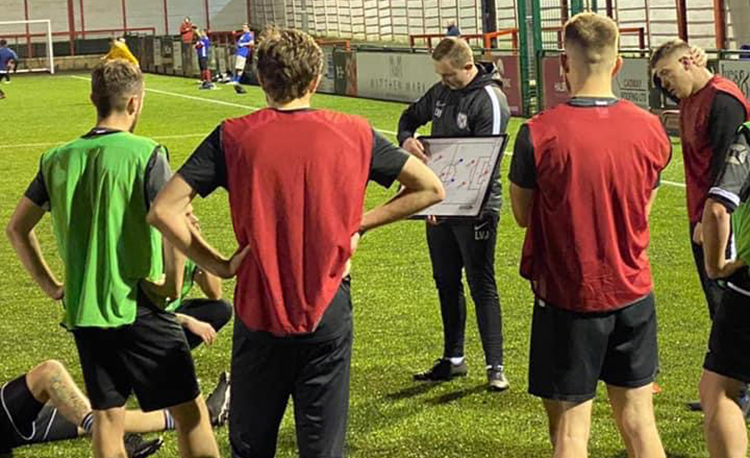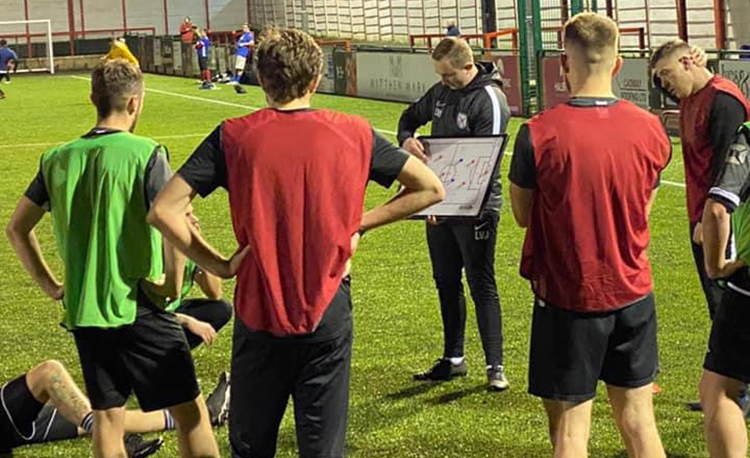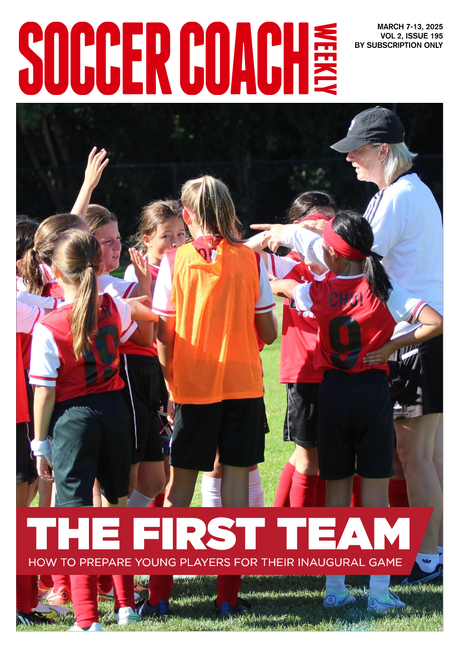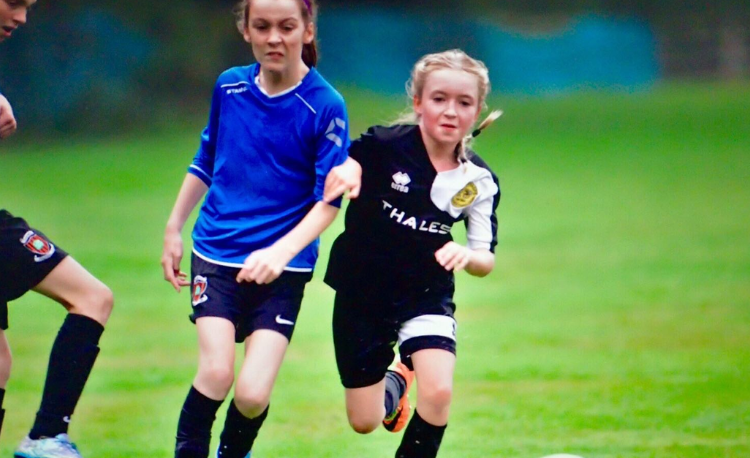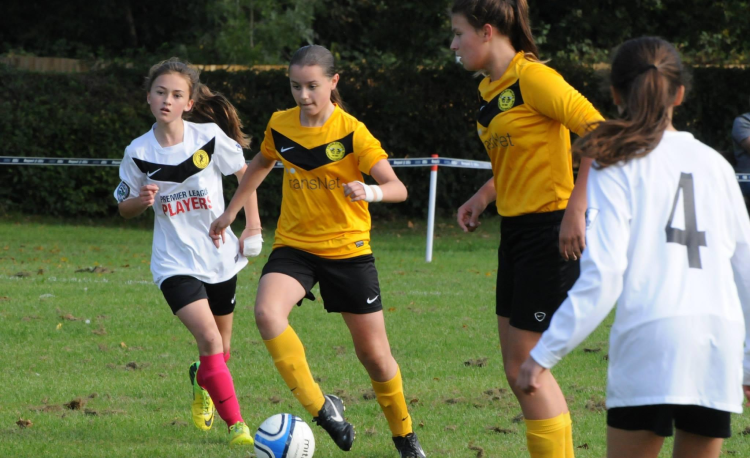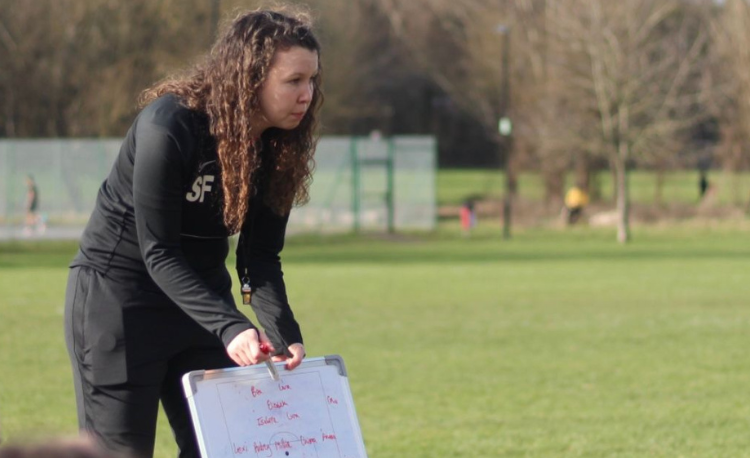Lewis Vaughan-Jones: Challenge of taking on multiple teams
A coach of various youth sides, academy goalkeepers and a senior first team, Lewis Vaughan-Jones tells Steph Fairbairn how he juggles many roles
Lewis Vaughan-Jones finds himself in a position many coaches will be all too familiar with – working with multiple teams.
Lewis coaches the U8s, U9s and U14s at Notts County’s development centre, the goalkeepers at Notts County Girls, and a senior men’s team in tier 11 of the English football pyramid, Wollaton FC.
It means the 22-year-old FA Level 2 coach is gaining lots of experience fast. But it also comes with its challenges.
SCW caught up with Lewis to talk about what his week looks like, the similarities and differences across the environments he works in, and what he has learned about himself from combining environments…
SCW: You coach a few teams. Give us an overview of what your week and those different environments looks like...
LV-J: "Week to week, it can be a bit different depending on what I’m doing. Usually I’ll work 7:30am to 4:30am, because I teach PE in a primary school as well.
"Mondays are my only evening off, so they’re quite chilled. Tuesdays can be an evening off - sometimes I might help out with the development centres if needed.
“Wednesday is quite a full-on day. It can be at work all day, then I’ll be straight to Notts County, 5pm-8pm, then I’m straight to the [Wollaton] first-team’s training, 8.30pm-9.30pm, so that can be a near 14-hour day.
"Thursday is work again, then I actually train myself in the evening, from 8.30pm-10pm because I’m still playing on a Sunday. Sometimes I’ll help cover sessions as well if I need to.
“Fridays, [I’m at] work all day, and then I work with the goalkeepers at Notts County girls from 5.30pm until 6.45pm. Saturdays are full-on, all-day coaching. Then Sundays I play myself. It’s quite a full-on week."
SCW: How do you factor planning in?
LV-J: "I’ve moved away from traditional planning. When I’m working with grassroots teams, I kind of plan basics.
"[If] you plan for 16 kids, you might get 11 turn up. [If] you plan for x amount of space, that might end up changing. So I plan loosely based on the topic.
“Back when I used to coach an under-12s team, I’d have a rough idea of what I wanted to do scribbled down on paper. I’m not a fan of session plan templates, I like scribbled notes and then I’ll adapt from there.
"Mondays are my only evening off. Wednesday can be a near 14-hour day..."
“However, with the goalkeepers on a Friday night, I know roughly how many I’m going to have, I know specifics down to the space and what goals I have available, and, because it’s the girls’ academy, you’re getting written reports on what they need to work on.
“I would normally plan that from the Monday [after] I get the reports in from the games at the weekend.
"It’s the same with the development centres - you get the reports of what they might need to work on if they play for the academy side at the weekend, and then I can plan all that Monday.
“In terms of grassroots coaching, it’s kind of a loose plan. You have to adapt on the spot half the time."
SCW: Across those different environments, what about you as a coach stays the same? And what is different?
LV-J: "I did a bit of coaching for the Football Fun Factory. Their priorities were safety, fun and development - that’s kind of stuck for me.
"So, my [priorities in] sessions for any age group - whether it be U8s through to adults and open age - will always be safety, then fun, then development. Because if people are safe and having fun, that’s when they’ll develop.
“I’m not trying to steal their priorities, but they really stuck with me. It’s something that really stood out and it’s something I’ve tried to adapt into all of my coaching. The main thing for me is making sure it’s fun.
“No matter the age, if they’re not having fun, they’re not going to engage and they’re not going to be interested.
"With the men’s first team, we might just do a 7-a-side game, because the lads find it fun, they’re competitive, and then I can coach from that. So fun is my main thing as a coach.”
SCW: How does your communication differ depending on the different groups you’re working with?
LV-J: "It is a challenge. On a Wednesday, I’ll come from an U8s, U9s or U14s session to then go and coach an adults team. So it’s a little bit different. It’s a little bit more relaxed with the younger ones, which I quite like.
“Adults can tell when a session is not going well, they expect it to be on point. So your communication is probably [going to be] a bit more autocratic, you’re probably speaking at them a little bit more.
“With the younger ones, I quite like a trial-and-error approach, especially working in a school. I like discussions - let them work it out and let them work as a team.
"It is a challenge to switch from one to the other within 45 minutes. But it’s a good challenge.
“I would say if anybody coaches two different age groups back-to-back, then try it - it does open your mind on how you can bring something from U8s and U9s into a first-team session, communication-wise."
SCW: What have you learned about yourself as a coach across these environments? Are there things you do that transfer across the environments?
LV-J: "I’ve learned I’m a lot more confident. The 16-year-old me leaving school had no confidence whatsoever.
"I kind of built it up, going from the U8s and U9s to the U12s, U15s and the U21s, then going into the first team, to where I feel a lot more confident being more vocal.
"With younger age groups, I’ll step back and observe a bit more. I like that on a match day as well - my role is a warm-up, and then a bit of input at half-time.
"But then I’ll also apply that to the first team - take a step back, come out of the intensity of the moment, and just observe and see what’s going on and look at the bigger picture.
“I stepped into senior football at 19. All I’d seen of senior football was on TV - it’s intense, they’re shouting, everybody’s speaking, it’s always loud.
"Actually, I realised, sometimes it’s better off just to take that step back. That probably helped me with my Under-8s and Under-9s and [led to me] taking that into the senior side as well."
SCW: What advice would you give any coaches that are working multiple roles?
LV-J: "One thing is not to forget about your social life, and that work/life balance.
"When I first started, I went coaching every single night for two hours. I was probably coaching 10 hours across the week after work.
“It got to a point where I had a conversation with my dad, and he said to me, ’You look tired, all this coaching is doing you no good’. At the time, I was thinking, ’no, I’m enjoying it’.
"Then it got to the point - I think it was the end of the season - I just sat there and went, ’I can’t do this any more. I can’t coach for this amount of hours after working eight or nine hours a day’. So I made the decision to drop quite a few things.
"I think embrace what comes your way and embrace what you’re doing, but don’t forget to have that rest and that social life and that balance.
"Don’t get caught up in ’I’ve got to spend this many hours on the pitch, I’ve got to do this, I’ve got to do that to try and get where I want to be’. That’s something I found quite early on."
Related Files
Newsletter Sign Up
Coaches Testimonials

Gerald Kearney, Downtown Las Vegas Soccer Club

Paul Butler, Florida, USA

Rick Shields, Springboro, USA

Tony Green, Pierrefonds Titans, Quebec, Canada
Subscribe Today
Discover the simple way to become a more effective, more successful soccer coach
In a recent survey 89% of subscribers said Soccer Coach Weekly makes them more confident, 91% said Soccer Coach Weekly makes them a more effective coach and 93% said Soccer Coach Weekly makes them more inspired.
*includes 3 coaching manuals
Get Weekly Inspiration
All the latest techniques and approaches
Soccer Coach Weekly offers proven and easy to use soccer drills, coaching sessions, practice plans, small-sided games, warm-ups, training tips and advice.
We've been at the cutting edge of soccer coaching since we launched in 2007, creating resources for the grassroots youth coach, following best practice from around the world and insights from the professional game.
